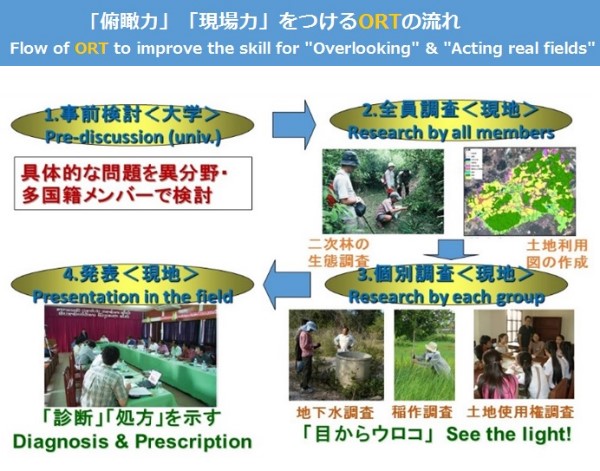Home![]() Clinical Environmental Studies Program
Clinical Environmental Studies Program![]() About the Clinical Environmental Studies Program
About the Clinical Environmental Studies Program
Clinical Environmental Studies Program
About the Clinical Environmental Studies Program
The Clinical Environmental Studies Program hoped to build an integrated center of education and research from which we can develop a new approach to environmental studies. As such, we are concentrating on two central pillars, which can support the program as it grows: the practical implementation of Clinical Environmental Studies and the construction of Basic Environmental Studies .
Clinical Environmental Studies is concerned with specific environmental problems in discrete regions. It observes the relationships between diagnosis, treatment and impact assessment, and functions to propose practical solutions in which these three elements can feedback into each other to ensure mutual benefit. It can only be achieved through the participation of and collaboration with researchers from multiple disciplines. By contrast, Basic Environmental Studies is a trans-disciplinary approach that seeks to systemize the globally applicable fundamental principles that support Clinical Environmental Studies.
Classes and Research Instruction in Basic Environmental Studies (CBES) 1/2 and On-site Research Training in Clinical Environmental Studies (ORT) 1/2
The Integrated Environmental Studies Course aims at obtaining broad perspectives on environmental issues and problem solving capacity on the grounds simultaneously, which cannot be readily learned in the laboratory activities, by means of participation of students and teaching staffs from various fields of disciplines.
SDGs Basic Seminar, entitled "Perspective on Sustainable Society," looks at what sustainability is in multifaceted manner, aiming development of a new concept beyond sustainability. Students identify the theme, conduct literature survey and report and share the findings and ideas.
By contrast, On-site Research Training in Clinical Environmental Studies (ORT) look at specific region. Cross-disciplinary teams of graduate students and faculty will work to identify an issue that threatens the natural environment of a certain region and the sustainability of the local community there. The team then works with the local community and local government to look at potential solutions and to predict the impact of the implementation of such. Students join a team focusing on certain sites in the Ise Bay Bioregion. Practical study is then carried out, including field work in the region. This field work forms the core of the course, with students attending seminars before and after field work to deepen their understanding of the region and its problems. Team findings are collated into a final report, and a briefing session is held.

